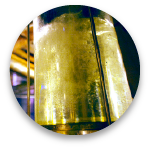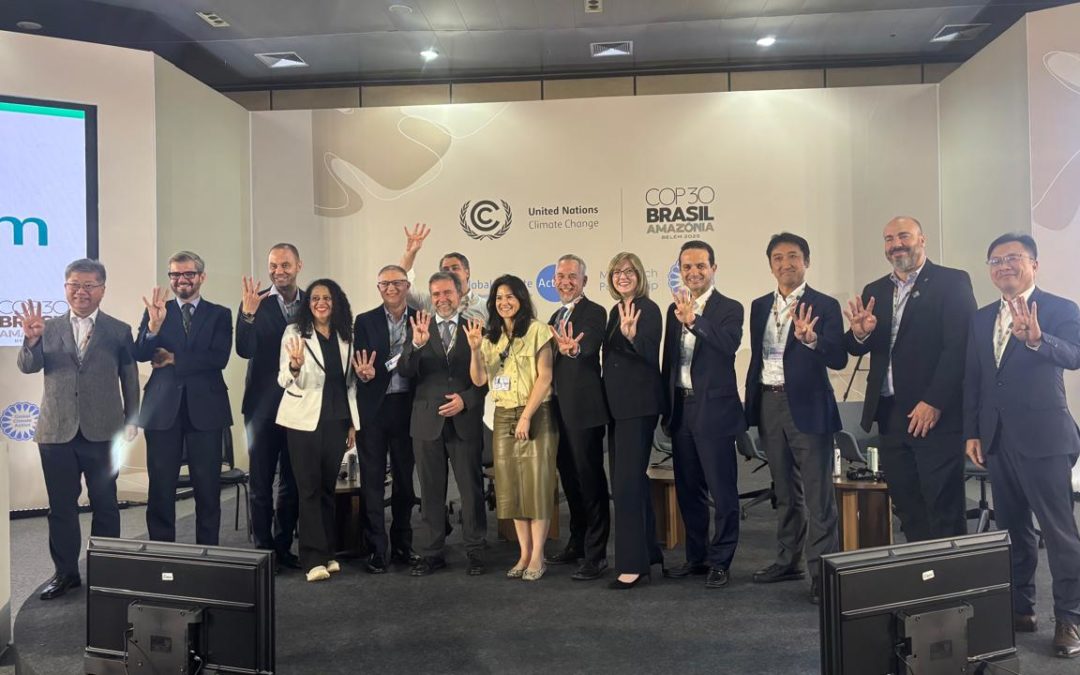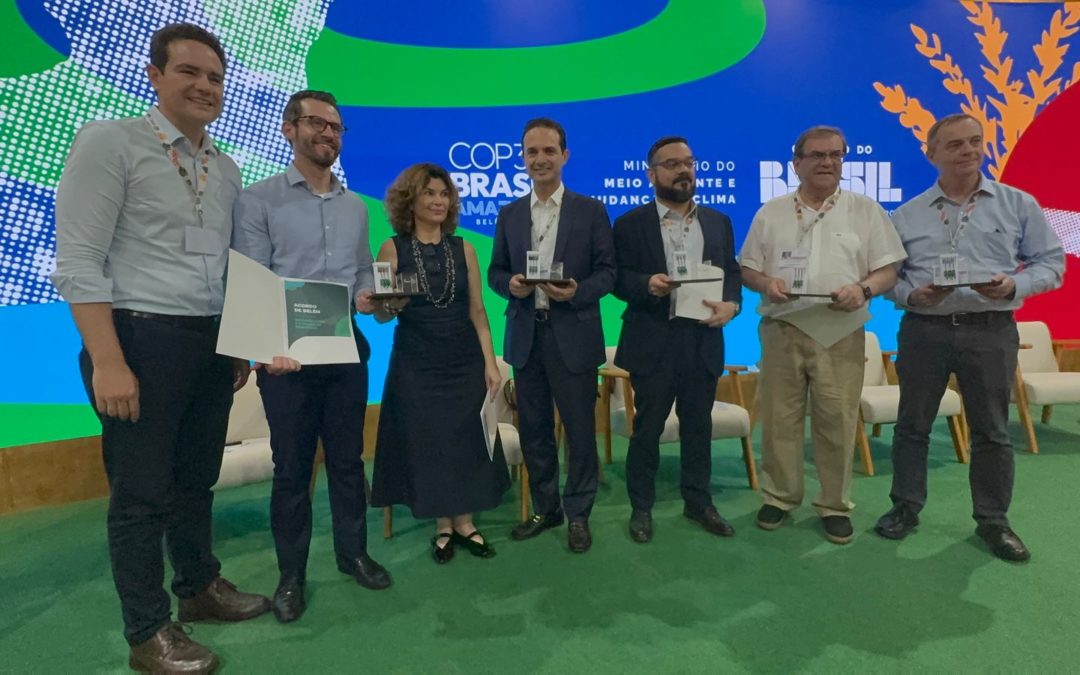ETHANOL
Brazil is the world’s largest sugarcane ethanol producer and a pioneer in using ethanol as a motor fuel. In 2023-2024, Brazilian ethanol production reached 35.9 billion liters. Most of this production is absorbed by the domestic market where it is sold as either pure ethanol fuel (E100) or blended with gasoline (E27).
![]() Sugarcane ethanol is an alcohol-based fuel produced by the fermentation of sugarcane juice and molasses. Because it is a clean, affordable and low-carbon biofuel, sugarcane ethanol has emerged as a leading renewable fuel for the transportation sector.
Sugarcane ethanol is an alcohol-based fuel produced by the fermentation of sugarcane juice and molasses. Because it is a clean, affordable and low-carbon biofuel, sugarcane ethanol has emerged as a leading renewable fuel for the transportation sector.
Ethanol contributes to decarbonizing transport in two ways:

Blended with gasoline

Pure
BENEFITS
Ethanol adds oxygen to gasoline which helps reduce air pollution and harmful tailpipe emissions. Ethanol also reduces Greenhouse Gas (GHG) emissions by up to 90% when compared to fossil fuels, performing better than any other liquid biofuel produced today on a commercial scale.
Beyond its positive environmental impact, ethanol can also enhance a vehicle’s performance. It is a high-octane fuel that generates more power in higher compression engines.
Available now, ethanol helps to reduce global dependence on fossil fuels and can be used to diversify a country’s energy matrix.
OVER
2.5 bi
barrels of gasoline substituted between 1975 and 2023 in Brazil
Biofuels
are central to Brazil’s low carbon emission strategy
Per capita GDP rise of
USD 1,098
in Brazilian cities where
ethanol is produced
BRAZIL: A LEADER IN ETHANOL
PRODUCTION AND USE
Brazil has achieved greater energy security thanks to both a competitive sugarcane industry and policies that make ethanol a key part of its energy matrix. In 2023, Brazil replaced 44% of its gasoline needs with sugarcane ethanol.
Let’s Make Decarbonisation a Difficult Task
Decarbonization in the European Union may be hindered by sidelining crop-based ethanol — a scalable, science-backed solution.
News

COP30 First Week Fueled by Biofuels Panels Discussions
Throughout the first week of COP30, alongside the official negotiations, several important forums and debates on energy transition took place, with Brazil’s bioenergy sector participating actively.

Brazilian Bioenergy Sector Launches a Declaration on Belém Accord at COP30
At COP30 Brazil’s biofuels sector took a landmark step in reinforcing the global role of sustainable fuels in meeting climate commitments.
